Panels
Participate in a conversation with experts about important areas affecting physicians scientists
Critical and Social Perspectives on Aging Panel
"Critical and Social Perspectives on Aging" will draw from the social sciences and humanities to consider the annual meeting theme of healthy longevity through a critical lens. The discussion will include scholars in anthropology, history, and bioethics, and will explore the complexities of aging in different cultural and historical contexts.
- Schedule: Saturday, April 21, 5:45 pm – 7:00 pm
- Location: Crystal Room
Participants
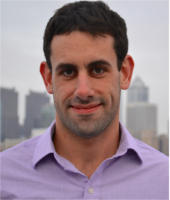
Josh Franklin, BS (Moderator), University of Pennsylvania
Josh Franklin is a 5th-year MD/PhD student in anthropology at the University of Pennsylvania. His research interests include gender and sexuality, childhood, mental health, and Brazil, where he conducted an ethnographic study of gender affirming medical care in the public healthcare system. Currently, he is beginning a project which explores the impact of care and role of medical institutions in the lives of transgender-identified and gender-nonconforming youth in Philadelphia, as well as the diverse experiences of childhood gender that are not represented in medical settings. He is currently the APSA Member-at- Large for Social Sciences and Humanities.
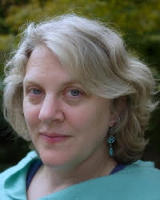
Janelle Taylor, PhD, Department of Anthropology Professor at the University of Washington
As a sociocultural anthropologist Dr. Janelle Taylor uses ethnographic methods to study health, illness, medical education, medical technology, and medical practice. Her research has focused on a variety of topics relating to medical technology, medical education, and medical practice, including fetal ultrasound imaging, medical decision- making at the end of life, how 'culture' is understood and taught within medical education, the work of "Standardized Patients" and ther role in teaching and assessing clinical skills, and questions of recognition and care in relation to dementia. Recent research explores why friendships so often prove fragile after the onset of dementia, and how some friendships nonetheless manage to adapt and adjust. A new grant from the NIA will support research into whether and how differences in health outcomes and/or health care utilization among older adults with dementia may relate to availability of family to provide informal caregiving support. A thread running through all of Dr. Taylor's research is a concern to document and understand how representations inform social practices; how mediation happens between different systems of value; how "persons" are socially made (and unmade); and how medicine and health care are involved in all of this.
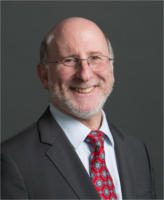
Greg A. Sachs, MD, Indiana University
Dr. Greg Sachs is Professor of Medicine and Neurology and Chief of the Division of General Internal Medicine and Geriatrics at the Indiana University School of Medicine and Investigator in the IU Center for Aging Research and the Regenstrief Institute, Inc. Dr. Sachs received his B.A. from the University of Chicago (U of C) in 1981 and his MD from Yale University in 1985. He trained in internal medicine at the U of C and then completed a combined three-year geriatrics and clinical ethics fellowship.
Dr. Sachs's research and writing focus on ethical issues in dementia, including research ethics, care of comorbid medical conditions, and care at the end of life. Dr. Sachs has received grants from NIH, AHRQ, CMS, and numerous foundations. He has published over 110 articles in peer- reviewed journals, including papers in leading journals such as JAMA, NEJM, and Annals of Internal Medicine. In 2001, Dr. Sachs received the Outstanding Scientific Achievement for Clinical Investigation Award from the American Geriatrics Society (AGS) and was a Medical Honoree of the Alzheimer's Association.
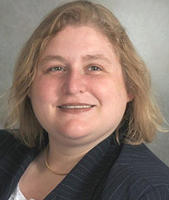
Carla Keirns, MD, PhD, Kansas University Medical Center
Carla Keirns, MD, PhD, is Assistant Professor of Palliative Medicine as well as History and Philosophy of Medicine at University of Kansas Medical Center. In addition to being an active clinician, she conducts research at the intersection of public health and public policy, using a variety of methods and perspectives to answer questions about the social context of chronic disease, health disparities, and end-of-life care. She has authored articles and book chapters in clinical ethics, health services research, and the history of medicine, with a focus on health disparities, end of life care, chronic disease, epidemiologic transitions and public health ethics.
Policy and Advocacy Workshop
- Schedule: Saturday, April 21, 5:45 pm – 7:00 pm
- Location: TBA
Participants
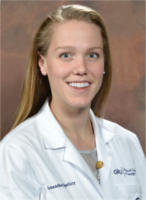
Samantha Spellicy, BS (Moderator), MD/PhD Student at Medical College of Georgia and University of Georgia.
Ms. Samantha Spellicy is a 4 th year MD/PhD student at the Medical College of Georgia and University of Georgia. She received her B.S. degree in Physiology and Neurobiology from the University of Maryland. After completion of her postbaccalaureate, Ms. Spellicy began her medical training at the Medical College of Georgia. While engaged in the medical curricula, she was selected as a co-coordinator of the newly founded Equality Clinic where in addition to her clinical duties, she was able to conduct medical education research on the student-led interdisciplinary clinic. During this time, she also participated in stroke research through the neurology department at MCG under Dr. Jeffery Switzer, D.O, and Medical School Dean Dr. David Hess, MD.
Last year, she started her PhD in neuroscience in the Regenerative Bioscience Center at the University of Georgia in the lab of Dr. Steven Stice, PhD. In the lab, she works on development of regenerative medicine therapies for neurodegenerative diseases such as stroke, Parkinson’s, and glioblastoma multiforme. Currently, Ms. Spellicy is a member of the APSA Policy Committee, in addition to holding positions in multiple organizations at UGA. Following completion of her MD/PhD she hopes to pursue residency training in neurosurgery or neurology.
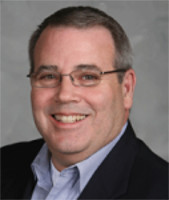
Michael Coburn, Executive Vice President and Chief Operating Officer of Research!America,
Michael Coburn serves as Executive Vice President and Chief Operating Officer of Research!America, the nation's largest not-for- profit public education and advocacy alliance committed to making research to improve health a higher national priority. Throughout his more than 30 years serving the nonprofit sector, his focus on optimizing organizational performance through strong governance, sound financial management, innovative program development and passionate advocacy has blazed a track record of success with prominent mission-based organizations. He has planned workshops and presents regularly to a variety of scientific and non-scientific audiences on public engagement and science advocacy. Mike frequently represents Research!America at gatherings of members and stakeholders, including the Friends of the National Library of Medicine, NIH Scientific Fellows retreats and sessions at the Biotechnology Innovation Organization annual convention.
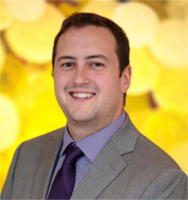
Ryan Murray, BS, Research Advocacy Specialist with the American Society of Nephrology
Ryan D. Murray is a Research Advocacy Specialist with the American Society of Nephrology (ASN). In this role, Mr. Murray works to raise the profile of kidney diseases, and the need for kidney research, while enhancing the presence of ASN and the specialty of nephrology in federal research funding agencies. In order to foster discovery and innovation in nephrology, Mr. Murray seeks to identify creative opportunities for ASN to support and partner with federal agencies and other research stakeholders to advance kidney research. Mr. Murray, in collaboration with members of the ASN Policy and Government Affairs staff, develops ASN’s research appropriations recommendations and research agenda.
In a previous role with ASN’s public-private partnership with the U.S. Food and Drug Administration, the Kidney Health Initiative, Mr. Murray provided project management support to key project stakeholders and assisted workgroup chairs in meeting goals and deadlines. Mr. Murray held previous public, private, and non-profit positions within Washington, DC.
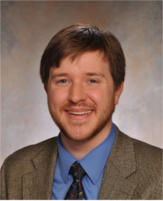
Benjamin Krinsky, PhD, Senior Legislative Affairs Officer at the Federation of American Societies for Experimental Biology
Benjamin Krinsky is the Senior Legislative Affairs Officer in the Office of Public Affairs at the Federation of American Societies for Experimental Biology (FASEB). In this capacity, he advocates for increased federal support for fundamental research in the biological and biomedical sciences. His work mainly relates to the budgets and policies of the National Science Foundation, the Department of Agriculture, and the Department of Energy Office of Science. Before working at FASEB, Ben was a Christine Mirzayan Science and Technology Policy Fellow at the National Academies of Sciences, Engineering, and Medicine. He completed his PhD in evolutionary biology at the University of Chicago where his dissertation research focused on the function and evolution of recently duplicated genes in the fruit fly genus, Drosophila. Prior to graduate school, Ben worked as a research technician at 454 Life Sciences Corporation in Branford, Connecticut, where he helped to develop new DNA sequencing technologies. He also spent a year as a research intern at the Max Planck Institute for Evolutionary Anthropology in Leipzig, Germany, where he explored questions about primate evolutionary genetics. He holds a BS in biology from Yale University.
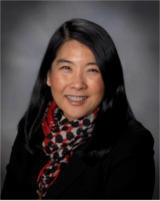
Sharon K. Inouye, MD, MPH, Hebrew SeniorLife/Harvard Medical School
Dr. Inouye is an internationally recognized leader in geriatric medicine and aging research. She is an elected member of the National Academy of Medicine, chaired the Delirium Clinical Guidelines Panel for the American Geriatrics Society, and serves as an Associate Editor of the Journal of the American Geriatrics Society. Her research focuses on prevention of delirium and cognitive decline with aging, promoting healthy aging and independence follow acute illness, and improvement of healthcare systems through policy.
Continuously NIH-funded since 1989 with over 50 grants and over 250 publications, Dr. Inouye developed the Confusion Assessment Method (CAM)—the most widely used method for delirium identification, used in over 4000 publications and translated into 20 languages—along with the Hospital Elder Life Program (HELP) for delirium prevention, a cost-effective model of patient-centered care that has been disseminated to over 200 hospitals worldwide. She was recently awarded an R24 Delirium Network grant by the National Institutes of Health. She is committed to translating research into practice and policy changes.
Alternative Careers
Have you ever wondered what types of careers are pursued by physician scientists who don't go into academic medicine? Join us for an exciting discussion of alternative career paths - either planned or unplanned! - from our panelists, who collectively have experienced the role of a physician scientist in the US House of Representatives, the FDA, NASA, and the biopharmaceutical industry!
- Schedule: Sunday, April 22, 10:00 am – 11:00 am
- Location: Embassy Room
Participants
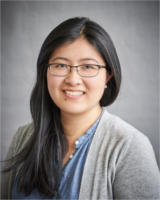
Eileen Hu, BS (Moderator), Ohio State University
Eileen Hu is a fifth year MD/PhD student in the Ohio State University Medical Scientist Training Program. Growing up in California, she relocated to Shanghai, China with her family in high school where she lived for 3 years. She attended the University of California, Los Angeles where she graduated with a BS in Biochemistry in 2013. During her undergraduate years Eileen was engaged in various research projects from studying hematopoiesis in Drosophila and senescence and aging in C. elegans. Her love of translational science developed during an internship she held in the summer of her junior year at GlaxoSmithKline. She is currently pursuing her PhD in Biomedical Sciences in the lab of Drs. Natarajan Muthusamy and John Byrd studying mechanisms of oncogenesis, evolution, and targeted drug therapy for chronic lymphocytic leukemia. Currently, she is a member of the APSA Events Committee. Following completion of her MD/PhD, she hopes to pursue residency training in hematology/oncology.
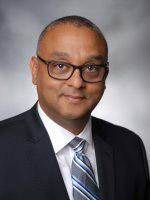
Daryll C. Dykes, PhD, MD, JD, President and CEO of Medical and Surgical Spine Consultants of Minnesota
Dr. Daryll Dykes is native of Syracuse, New York. After serving in the U.S. Marine Corps, he completed undergraduate studies at Syracuse University and the MD/PhD medical-scientist program at SUNY Upstate Medical University. He then trained in orthopedic surgery at the University of Minnesota, and completed fellowships in spine surgery, trauma surgery, and health services outcomes research. After a decade of patient care, research and teaching—fueled by his growing interest in physician leadership and systemic healthcare issues—Dr. Dykes completed his JD at William Mitchell College of Law. He has held numerous local and national leadership positions in educational and philanthropic organizations, has authored over two dozen book chapters, journal articles, and law review articles, and has mentored over 100 orthopedic fellows. His personal and academic accomplishments led to his selection as a 2016-17 Robert Wood Johnson Foundation Health Policy Fellow—the nation’s most prestigious learning experience at the nexus of health, science, and policy in Washington, D.C. In this capacity, Dr. Dykes worked as an integral staff member on the U.S. House of Representatives Committee on Energy and Commerce—the congressional committee with the broadest jurisdiction over federal healthcare, including the Department of Health and Human Services, CMS, CDC, NIH and FDA. After transitioning to the FDA to assist in the implementation of key legislative mandates passed during his time on Capitol Hill, Dr. Dykes returned to the managing partner role in his practice in Minneapolis. Outside of work, he is a passionate traveler, bicyclist, foodie, and photographer.
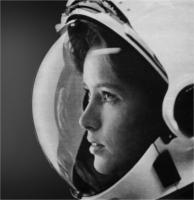
Anna Fisher, MD, University of Rochester School of Medicine & Dentistry
Fisher holds a mark of distinction in the history books; she became the first mother in space when she flew on STS-51A.
Anna Fisher graduated with a Bachelor of Science degree in chemistry and a Doctor of Medicine degree from UCLA in 1971 and 1976, respectively. Fisher received a Master of Science degree in chemistry from UCLA in 1987. Fisher joined NASA in 1978 when she was selected as an astronaut candidate. A space flight veteran, Fisher spent 192 hours living and working on the space shuttle orbiter. On Nov. 8, 1984, Fisher flew as a mission specialist on STS-51A, the second flight of the Space Shuttle Discovery. During the mission, the crew deployed two satellites and operated the Radiation Monitoring Equipment (RME) device. This was the first space salvage mission, as the crew retrieved the Palapa B-2 and Westar VI satellites to return to Earth. Fisher also supported shuttle missions STS-1 through STS-7 and served as Capsule Communicator (CAPCOM) for STS-9. She worked as the deputy of the Mission Development branch of the Astronaut Office and served on the Astronaut Selection Board for the 1987 class of astronauts.
From 1996 to 2002, Fisher was the chief of the Space Station branch of the Astronaut Office, during the early days of the International Space Station (ISS). In that capacity, she coordinated inputs to the operations of the space station for the Astronaut Office, working with all the international partners and supervising assigned astronauts and engineers. From 2011 to 2013, Fisher worked as an ISS CAPCOM in the Mission Control Center and was the lead CAPCOM for Expedition 33.
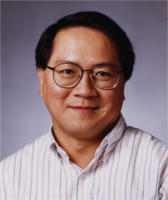
Andrew Chan, MD, PhD, Senior Vice President of Research-Biology at Genentech, Inc.
Dr. Andrew Chan is Senior Vice President of Research-Biology at Genentech, Inc. He joined Genentech, Inc in 2001 as Senior Director of the Departments of Immunology and Antibody Engineering, was named Vice President and Senior Vice President of Research- Immunology in 2003 and 2007, respectively, and appointed Senior Vice President- Research Biology where he oversees biological research at Genentech. His research is focused on immunobiology of immunodeficiencies and autoimmunity. Chan is a co-inventor of ocrelizumab, a CD20 targeting humanized antibody, approved for the treatment of relapsing and primary progressive forms of multiple sclerosis.
Chan serves on the National Council of the Washington University School of Medicine, National Research Advisory Council for Washington University, Board of the Rosalind Russell/Ephraim Engleman Arthritis Center, and Chemistry Life Processes Institute at Northwestern University. He is a frequent ad hoc reviewer for a number of scientific journals and NIH study sections. He is a member of the American Association of Physicians, American Society for Clinical Investigation, Henry Kunkel Society and a Pew Scholar.
The Do's and Don'ts of MSTP Admissions
Interested in a dual-degree training? Come hear from Physician-Scientist leaders, educators from three diverse institutions from across the country. You'll learn about their own paths, and what life is like as a physician-scientist. You'll have the unique opportunity to get all of you admissions question answered from directors and deans at UT Houston, Stanford and Michigan State University.
- Schedule: Sunday, April 22, 11:00 am – 12:00 pm
- Location: Gold Room
Participants
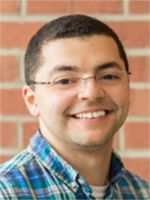
Jose Rodrigues, BS (moderator), DO/PhD Student at Michigan State University College of Osteopathic Medicine
Jose Rodrigues is a second-year osteopathic medical student a Michigan State University College of Osteopathic Medicine’s dual degree program. Jose’s PhD dissertation is in Microbiology and Molecular Genetics under the direction of Shannon Manning PhD. Jose and Dr. Manning focus on molecular epidemiology using Campylobacter jejuni as a model to understand pathogenesis of antibiotic resistant infections. During Jose’s undergraduate and before medical school he has engaged in research projects focusing on cancer biology, protein chemistry and population medicine. Jose has also been active member of Project 351 a non-profit organization focusing on training service-leadership skills to young adults in Massachusetts. Jose is interested using his training to pursue a career in infectious disease and applied epidemiology.
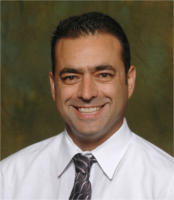
Andrea Amalfitano, DO, PhD, Director of Michigan State University’s Clinical and Translational Sciences Institute
Amalfitano earned a Bachelor of Science in microbiology in 1984 and a Ph.D. in microbiology in 1989, both from Michigan State University. He earned his Doctor of Osteopathic Medicine, or D.O., medical degree in 1990 from MSU College of Osteopathic Medicine’s D.O./Ph.D. dual-degree program.
His research focuses on determining the feasibility of cutting-edge therapeutics, including gene transfer, to treat both acquired and genetic diseases and then translating that knowledge into the clinical realm. His scholarly efforts in both clinical medicine and applied genetics have led to the development of innovative treatments for infants, children and adults affected by a variety of diseases, including lethal muscular dystrophies, cancer, autoimmune diseases and autism.
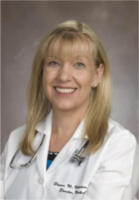
Dianna Milewicz, MD, PhD, President George H.W. Bush Chair of Cardiovascular Medicine, Director of the Division of Medical Genetics and Vice-Chair of the Department of Internal Medicine at the University of Texas Medical School at Houston.
Dianna M. Milewicz, MD PhD, is the President George H.W. Bush Chair of Cardiovascular Medicine, Director of the Division of Medical Genetics and Vice-Chair of the Department of Internal Medicine at the University of Texas Medical School at Houston. She completed her postgraduate training in internal medicine, specialized further in cardiology and medical genetics, and forged a career in translational studies focused on genetic predisposition to vascular diseases. Her research team identified many of the genes for inherited thoracic aortic disease and she organized the International Montalcino Aortic Consortium to define the phenotype associated with these genes. More recently, she has launched studies to investigate the genetic causes of childhood strokes. Dr. Milewicz has received numerous honors and awards for her research, including the Antoine Marfan Award from the Marfan Foundation, the Doris Duke Distinguished Clinical Scientist Award, and the University of Texas Presidential Scholars Award for Excellence in Research. She has been inducted into the American Society of Clinical Investigation and the Association of American Physicians. Dr. Milewicz is also committed to training physician scientists and have served as the Director of the M.D./Ph.D. Program offered jointly between the University of Texas Health Science Center at Houston and MD Anderson Cancer Center institutions for over 10 years.
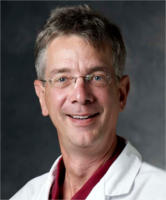
Paul Utz, MD, Professor Medicine/Immunology& Rheumatology Stanford University School of Medicine
Dr. Utz directs a highly-successful lab of 10-12 scientists at Stanford University School of Medicine. The lab focuses on the normal immune system and how it differs from the immune system of patients with immunodeficiency disorders, infections, and autoimmune diseases. Autoimmune diseases being studied include systemic lupus erythematosus (SLE), rheumatoid arthritis (RA), systemic sclerosis (scleroderma), myositis, primary biliary cirrhosis (PBC), Sjögren's disease, insulin dependent diabetes (type I diabetes or IDDM), multiple sclerosis (MS), inflammatory bowel disease (IBD), and mixed connective tissue disease (MCTD). In addition to trying to better understand the pathogenic mechanisms involved in autoimmune and inflammatory diseases, the lab is interested in developing bench-to-bedside technologies, including diagnostics and therapeutics, for human immune diseases. Finally, the Utz is also active in vaccine biology, both for inducing protective immunity to pathogens and for turning off immune responses in autoimmune diseases.
Resilience Workshop
Becoming a physician scientist—how does it really work? Hear our panelists share it all--from successfully negotiating their first jobs, navigating the career path with significant others, and conquering challenges along the way. Be inspired and empowered by their stories as they reveal the often-unspoken, yet essential, elements of becoming a happy physician scientist!
- Schedule: Sunday, April 22, 11:00 am – 12:30 pm
- Location: Gold Room
Participants
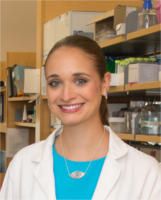
Audra Iness, BS (moderator), MD/PhD Student at Virginia Commonwealth University School of Medicine
Audra Iness is a fifth year MD-PhD student at Virginia Commonwealth University (VCU) School of Medicine. She graduated Summa Cum Laude with a B.S. in Biology from California State University, Fresno's Smittcamp Honors Program in 2013. Audra earned membership in the Association of Clinical Pathologists & The Intersociety Council for Pathology Information, Inc. Pathology Honor Society for her medical school performance. She has also been a coordinator for the Mattaponi Healing Eagle Clinic, serving the Native Americans of Virginia, and is an active member of the medical school Admissions Committee. Currently, Audra is studying the DREAM complex and its role in cell cycle regulation in Dr. Larisa Litovchick's lab at VCU. Additionally, she enjoys playing soccer and has been a part of a community league for several years. Her involvement in APSA began when she founded a local chapter at VCU and held roles as President and Institutional Representative. She has enjoyed working to unify the physician-scientist community in her roles on the Executive Council for the past three years. This year, Audra has established and Chaired the Physician Scientist Trainee Diversity Working Group, including representatives from five national medical organizations, aimed at supporting women and underrepresented groups in their pursuit of physician scientist careers. Working with her enthusiastic APSA colleagues, she plans to expand this initiative over her Presidential term in 2018-2019.
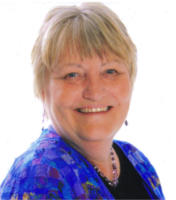
Kay Lund, PhD, Harvard Medical School
P. Kay Lund is Director of the Division of Biomedical Research Workforce and the NIH Extramural Research Training Officer in the Office of Extramural Research, Office of the Director, at the National Institutes of Health (NIH). She provides leadership for development, implementation, policy and evaluation of extramural programs related to research training, career development and diversity of the biomedical research workforce, including institutional training grants, individual pre- and postdoctoral fellowships and Career Development K awards.
Dr. Lund joined NIH from a career in academia including appointments at the Massachusetts General Hospital and Harvard, and a long career at University of North Carolina at Chapel Hill where she held a Sarah GrahamKenan Distinguished Professorship. Throughout her entire research career, she partnered with clinician investigators. Her long-standing research and publications focused on the glucagon-like peptides (GLPs), insulin-like growth factors (IGFs) and insulin family including basic molecular biology, gene structure and regulation and roles in intestinal epithelial renewal, regeneration, inflammatory bowel diseases and early stage cancer. Most recently she has studied roles specifically in intestinal stem cells and early precancerous lesions.
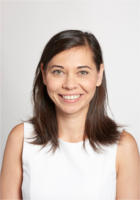
Dani Dumitriu, MD, PhD, Assistant Professor of Neuroscience at the Icahn School of Medicine at Mount Sinai
Dani Dumitriu, MD, PhD, is an Assistant Professor of Neuroscience and member of the Mindich Child Health and Development Institute and the Institute for Exposomic Research at the Icahn School of Medicine at Mount Sinai. She holds these faculty appointments concurrent with clinical training, currently completing the fifth and final year of a combined General Pediatrics Residency and a fellowship in Pediatric Environmental Health. This unconventional route of combining residency training with starting a lab was born out of a deep fascination with the neurobiology of stress resilience, the focus of the Dumitriu lab. Having begun this work during a brief post-doctoral fellowship toward the end the MD/PhD program at the Icahn School of Medicine at Mount Sinai, upon graduation, Dr. Dumitriu encountered the common physician-scientist predicament: the impossible choice between a prolonged absence from bench work versus continuing a research fellowship and giving up the rewards of clinical medicine. Refusing to make this difficult choice, upon matching into the Pediatric residency at the same institution, Dr. Dumitriu worked with the Departments of Pediatrics, Environmental Health and Neuroscience to develop a custom-tailored five-year track with integrated and increasing research effort. In Year 2, she was awarded a NARSAD Young Investigator award. In Year 3, she was appointed Assistant Professor in a Neuroscience, a non-clinical department. In Year 4, she was awarded an R01 from NIMH, making her the second documented resident (and first female resident) in the U.S. to receive the award during clinical training.
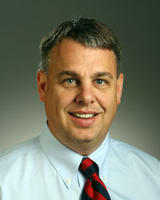
Michael Helmrath, MD, MS, Surgical Director of Research at Cincinnati Children’s Hospital Medical Center
As a pediatric surgeon, Dr. Helmrath has dedicated his clinical and research career to the care of patients with intestinal diseases. To achieve this, he has developed and oversees a multidisciplinary teams that combines clinical, translational and basic science. The main focus of his basic science laboratory is directed towards characterizing intestinal stem cells during development and following bowel loss to inform intestinal regenerative strategies. His clinical career is focused on both patients with intestinal short bowel and obese adolescents undergoing bariatric procedures, both including dedicated clinical studies. By combining his experience as the Surgical Director of Research at Cincinnati Children’s Hospital Medical Center, he is poised to establish translational therapies for the management of patients with intestinal diseases.